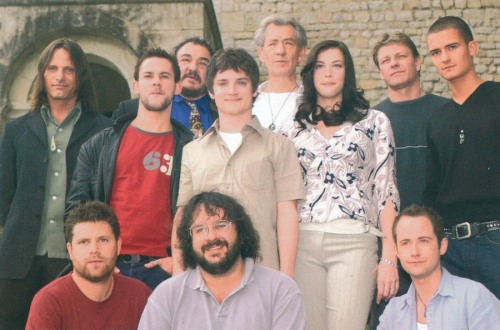
I felt like it crept up on me, but I was warned on my 16th birthday.
“Oh you’ll get excited about 16th’s!” she said.
“But then it’s 18ths, then 21sts, then graduations, then engagements, weddings, baby showers, first birthdays…”
I remember being all like “whaaaaaaaaaaat? That shiz is so far out, yolo!” (but yolo wasn’t a thing yet. Trendsetter).
…but it is here!
All of a sudden, I’m being invited to weddings, engagements and baby showers, my facebook feed is full of pictures of children (?) and various issues relating to child rearing (!!). There are epic debates about the virtues or sins of being married, worries about settling down, friends talking about mortgages and shares and buying houses…
I am super excited for all my friends that are going through these exciting and obviously life changing experiences.
On the other hand, I think I missed the memo. When did this all start to happen?
What exactly is going on?
Growing up, I guess…
***
There’s an article that’s making the rounds at the moment: 23 things to do instead of getting engaged before you're 23.
All in all, the tone of the article is a little self-interested and condescending, but hey. The reply, 24 things to do… is a little more aligned with my personal values, however both articles, and the respective responses (vehement, opinionated, passionate in approval or disapproval) illustrate something larger is at play. Something, I feel, particularly as a young Muslim woman from a traditionally conservative background who has grown up in a thoroughly Western society feels quite keenly.
What social norms are we meant to adhere to?
The world of my parents was simpler in a way: the roles that were to be played were understood. As my cousin said to me: “We know what we are meant to do to live a ‘good’ life by society’s standards, and how to be a ‘good’ woman. Being good in that way, and making my family happy and proud of me, that is what will make me happy’.
It’s simple.
Get an education but get married young,
have children,
be a good mother,
hold down a good house.
If you have a career alongside that, great, but your family is more important.
In Western society though, things aren't nearly so prescribed. In fact, the freedom of choice is lauded as revolutionary and liberating.
Yet…there is such anxiety in the twenty-somethings I know. There seems to be so much confusion around what is what; in relationships, in life, what we are meant to be doing and if we are meant to be settling down (am I behind? Should I find someone to settle with? Am I settling too fast?).
Seeing everyone else’s life, described daily for you in painstaking detail everywhere you look (phone, laptop, tablet…) only exacerbates the FOMO (fear of missing out).
It isn’t even just fear of missing out on an awesome party, it’s the fear of missing out on *life*. It’s the fear that, at its root is the most primal of fears – the fear of ending up alone.
I don’t know if this is something that *all* twenty-somethings go through and have gone through for decades and I am just discovering. This isn’t something I’ve been through before, personally. I’d also wager society is in a drastically different place to where it was even 20 years ago, so the experiences of previous generations are incomparable.
For me, it will be interesting to see how this year plays out.
Turning 23 for an Arab/African girl is definitely a point where family and community members start making noises about ‘settling down’ (you should have heard the conversation with my father as soon as I graduated from University…at 20!).
I am not against the idea of marriage as an institution in itself, far from it. It’s a huge part of Islam (half our ‘deen’, or belief in fact, so marriage is seen as a fundamental part of the way of life), and if I am being perfectly honest, as a Muslim, there are things I can only do as a married woman that the rest of society tells me are really quite fun, so I’d like to get to it!

At the same time though, there seems to be a perception that marriage brings about the end of all the fun. The responsibility, the kids, the family, the mortgage… and for women, the point where you start to think about juggling career and family.
So I don’t even know if I should be anxious about missing out, or living it up because I’ve only got a little while as a young free bird left!
All I know is this. I believe in fate, so I believe that what happens will happen, and what is meant to be shall be. I have control over my choices and how I respond to what does happen.
Some things are outside my control.
Being anxious about those things isn’t going to change anything.
So, I’ve decided I will do what I’ve been doing. Living life, being grateful Alhamdulilah, learning as much as I can, appreciating those around me and taking it as it comes. The fact that other people are at other stages in their life is exciting, but it should not affect how I live my life.
At the end of the day, we are the only ones who have to put up with ourselves forever. So we better make sure that we’re happy with the choices we make, regardless of what society says (or doesn’t say) we should be doing.
#yolo








 Ah, LOTR…Totally Irrelevant Photo =)
Ah, LOTR…Totally Irrelevant Photo =)